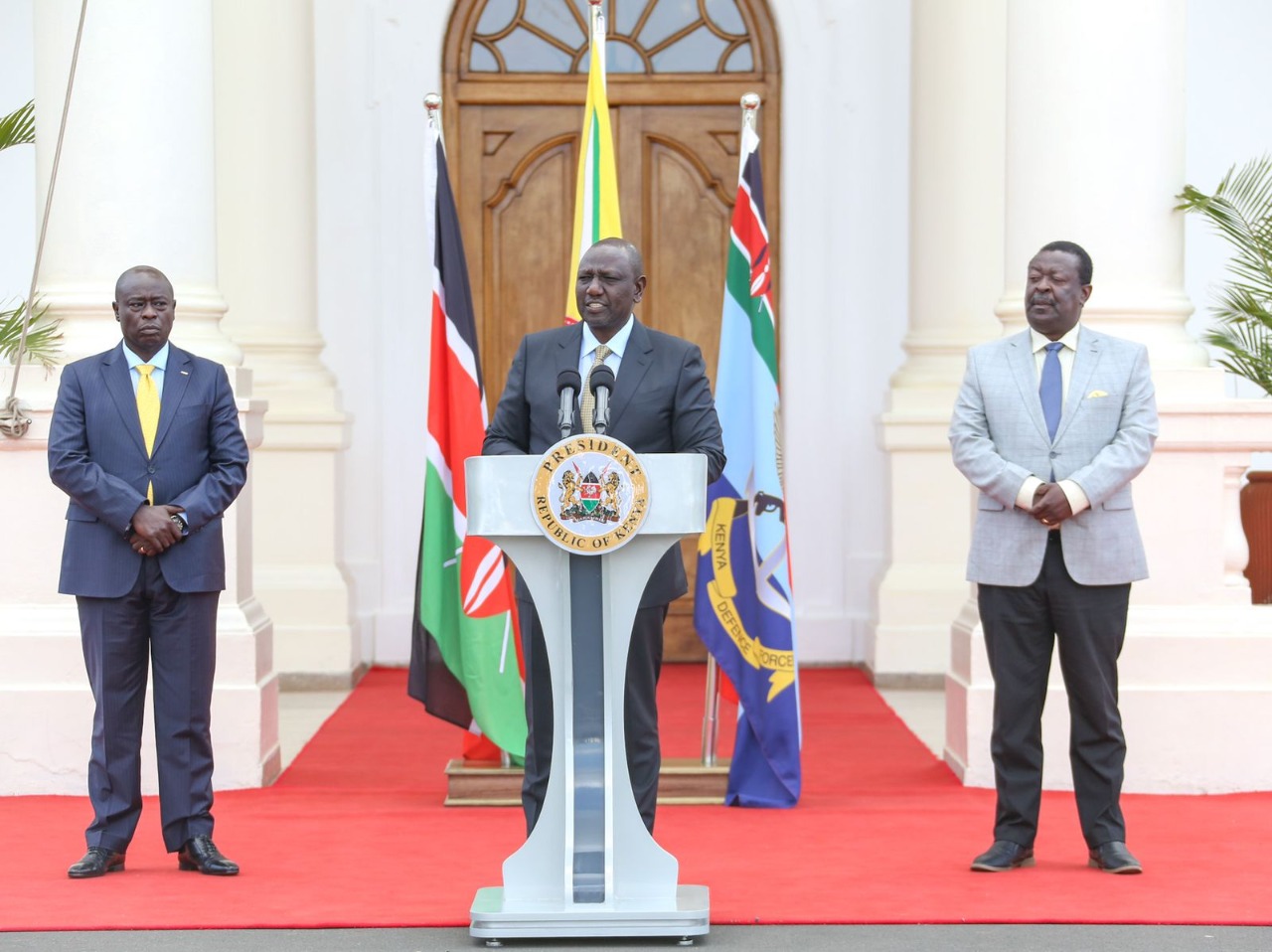We are excited to announce that Brink is now part of Africa Practice. Learn more
President William Ruto has done much and more within the past couple of weeks to entrench himself as the fifth head of state. He satisfied petroleum marketers and the IMF by dropping the fuel subsidy, reassured farmers with lower fertiliser prices while also allowing the entry of GMO products to alleviate food security concerns, and kept his word to coastal residents by restoring port operations to Mombasa.
Ruto’s cabinet nominees are a motley of loyalists, leftfield choices and career politicians. The president is clearly prioritising political ambition and already working towards a second term. With a few exceptions, his nominees seem more likely to focus on executing his vision with a view to consolidating executive power. Parliament’s Committee on Appointments commenced vetting ministerial nominees on 17 October, and is set to complete the process by 27 October.
The old guard
Ruto’s inner circle has been entrusted with the major portfolios – transport, energy, interior and cooperatives. The prime cabinet secretary, Musalia Mudavadi, is a relatively late entry into this circle. Not the most fervent loyal supporter, he rallied behind Ruto late in the campaign period. The position of prime cabinet secretary dovetails with that of the deputy president, who was widely regarded as a left field pick himself. There is the growing likelihood of tensions between the two, given their overlapping roles, with Ruto himself remaining the paramount decision-maker.
In what could be an attempt to soften the blow of an earlier snub for the deputy presidency, Ruto handed Kithure Kindiki the powerful Ministry of Interior. Kindiki possesses both the acumen and personality to balance respect for the coalition line with efforts to leave his own mark. Kipchumba Murkomen – nominated for the budget-heavy roads, transport and public works portfolio – is a Ruto man often relied upon to voice unpopular sentiments while enabling the president to remain above the fray.
Davis Chirchir’s nomination at the helm of the Ministry of Energy surprised few observers. His combination of corporate nous and political savvy have served him well – his reemergence comes after a corruption investigation that ultimately absolved him of wrongdoing. As Ruto has championed the energy transition imperative, Chirchir will have a nuanced balancing act to pull off.
Mithika Linturi meanwhile has been handed the agriculture docket without extensive experience in the sector. His dalliances with law enforcement agencies appear to have been offset by his ability to mobilise support in the Mount Kenya region. Linturi’s ministry will be central to the so-called Rutonomics.
Ruto’s bottom-up economic agenda rests on support for small businesses largely operated by the “hustler” class. For this portfolio, Ruto decided to retain Simon Chelugui from the previous cabinet and with good reason – he is a competent and influential leader. Chelugui will need to leverage his talent in order to successfully steer the newly created Ministry of Cooperatives and MSMEs. The government is grappling with a cash crunch and it is hoped that interventions in this sector will result in a new stream of revenue.
The newcomers
Ezekiel Machogu, Salim Mvurya, Zachariah Njeru and Eliud Owalo are all relatively new names. Machogu is a career educator who will struggle to exercise control over the vast education ministry; while Mvurya’s claim to the blue economy is his political standing at the coast. Njeru and Owalo contrast heavily. The former is a little-known ward representative from Nakuru who has been handed the lucrative housing docket; while the latter is a career economist who served as Raila Odinga’s aide and will now head the ICT ministry. Both will likely face a steep learning curve in terms of industry experience.
Susan Wafula, Aisha Jumwa, Florence Bore, Roselinda Soipan Tuya, Rebecca Miano, Alice Wahome, Peninah Malonza and Mercy Wanjau make up the list of eight female representatives among the 23 cabinet picks, despite Ruto’s earlier commitments to gender balance.
The establishment has its day
The treasury, attorney general’s office and defence slots are often signals of a player’s political clout. Justin Muturi’s selection as attorney general has long been assured. Even so, he will need more than political guile, and questions have been raised about his suitability to the role given his acrimonious exit from the judiciary in 1997.
Professor Njuguna Ndungú’s return to high office is also one to watch. His perceived failure to tackle inflationary pressures and the shilling’s depreciation during his time as CBK governor (2007-15) has raised questions as to his suitability at a time of rising living costs. Be that as it may, his vocal leadership and grounding in economics will bolster the Treasury.
Now set to take over at the Ministry of Defence, Aden Duale has earned a reputation for meticulous execution during his term as majority leader and will look to streamline a well-funded but highly bureaucratic state organ.
Pragmatism and ambition
There is something to be said for Ruto’s pragmatism, he seems to accept the premise that the road to power involves compromises. Many of the nominees, for example, have been embroiled in court cases and corruption allegations – with their ascent to power at times coinciding with prosecutions being abandoned.
To whom much is given, much will be required. Ruto has a penchant for control, and those close to him will know not to shake things up too much. For all the noise about his methods, the new president is known to make things happen. Maybe just maybe, he has a goal in mind that will benefit his electorate as well as his ambitions.
About the author
Victor Kimondo Maina is an Associate Consultant at Africa Practice, focusing on the digital economy and the extractives sector. He can be reached at [email protected]
Proud to be BCorp. We are part of the global movement for an inclusive, equitable, and regenerative economic system. Learn more



